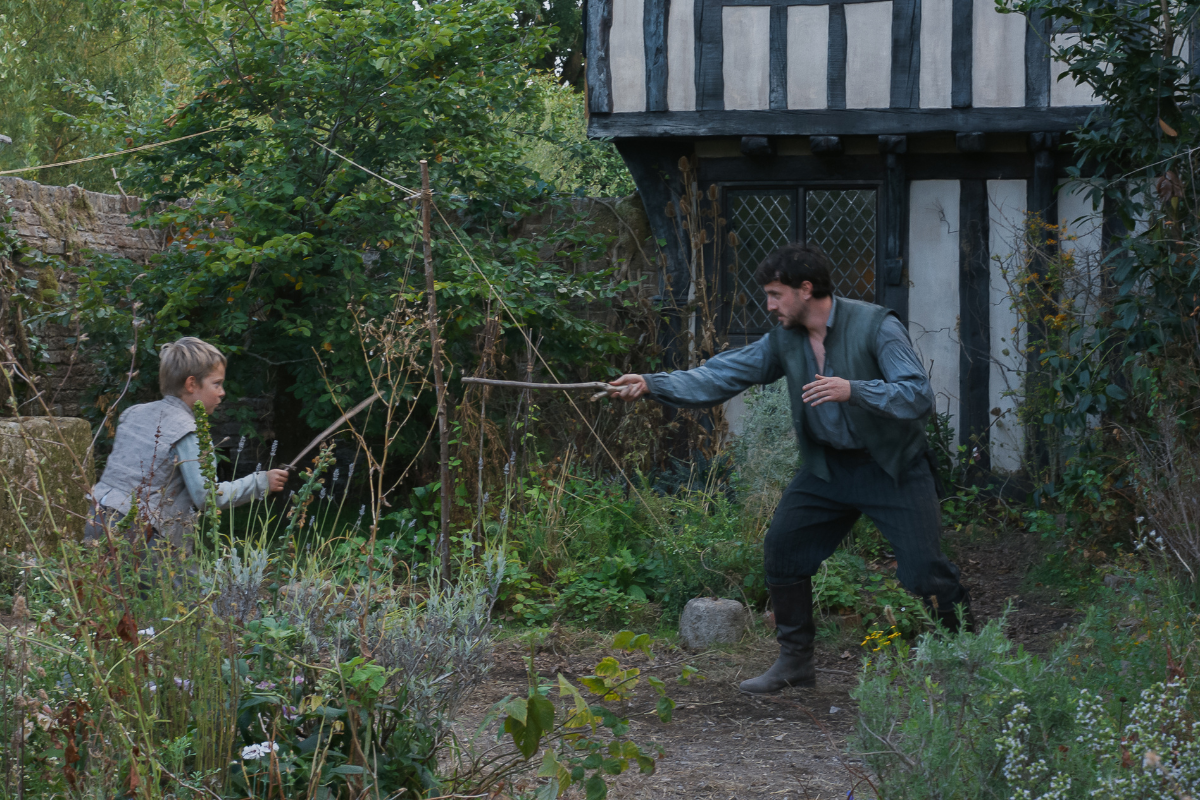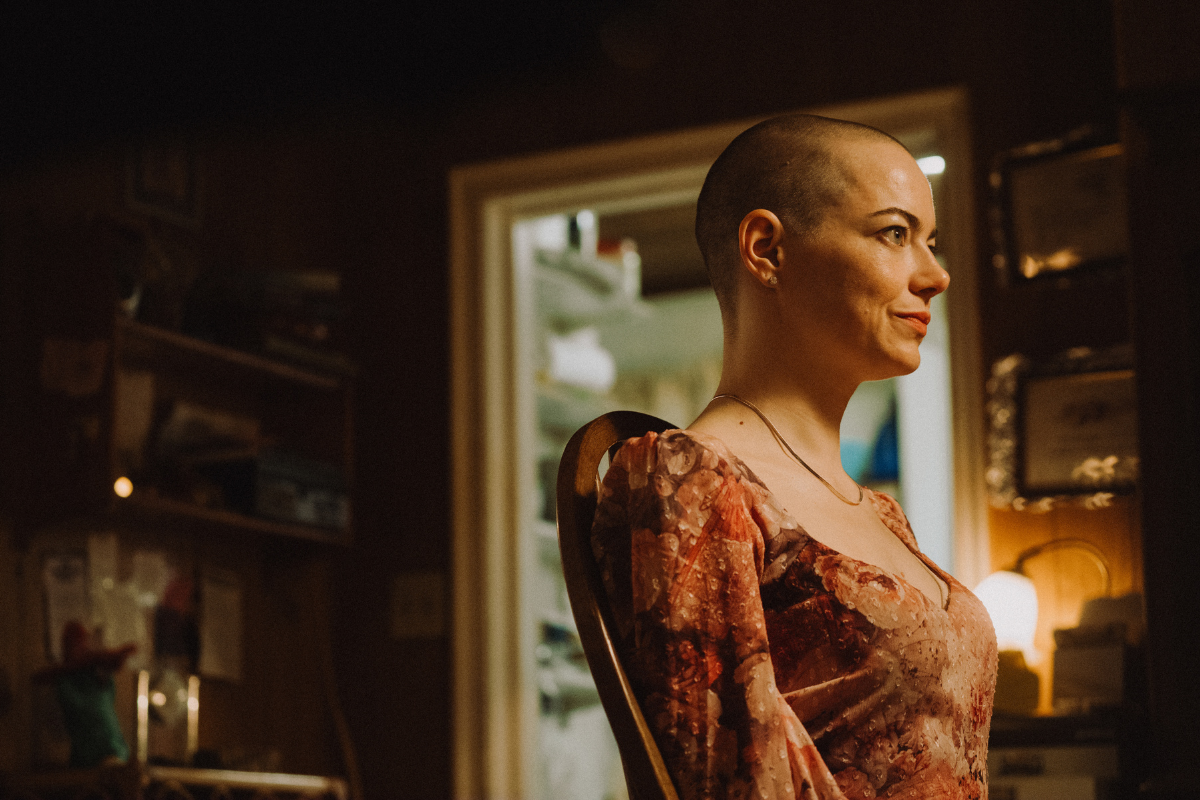SCREENWRITER’S GUIDEPOST: Choosing Projects – Which Screenplay Should I Write Next?
Choosing projects to focus on is never easy. Mario O. Moreno gives invaluable advice on how to decide which screenplay to write next.
Question: Which screenplay should I write next?
Easy, right? Pick the most marketable idea you’ve got, brew a tub of coffee, open a blank Final Draft file, and get tap-tap-tapping to FADE OUT.
Maybe not.
The coffee and Final Draft are fine, but what about “Marketable Script X”?
From my experience, every time I’ve chased the golden carrot (choosing an idea only because I thought others would deem it “commercial,” “hip,” or “high-concept”), I’ve found myself getting a response that was less than what I’d hoped for.
It’s not that the idea of writing something marketable is wrong (we’re all hoping to write something that others will want to read and see); it’s that no level of craft can mask hackwork. And writing something solely because you assume it’s commercial and will bring you money is hackwork. Chances are it’ll feel written by someone who wanted to get it over with as quickly as possible to collect a check. The check may never make an appearance as a result.
Screenwriterunknown.com estimates 30,000-50,000 scripts are written each year; sellascript.com has the estimate at 80,000-100,000 scripts. The Scoggins Report currently lists 110 spec sales so far this year. Even if we pad the number of sales with indies, the numbers are daunting—like lotto odds, but requiring time and sacrifice. As graffiti scrawled on a wall in the latest Hunger Games states: “The odds are never in our favor.”
Sources for ideas are infinite. You can adapt a news story, find a novel in the public domain, or even modernize a fairytale, to list just a few options. But, as I always remind writers I coach through The Writers Store, no matter where the idea springs from, this is what you need to ask yourself:
-Why do I want to tell this story?
-What do I want to explore through this story?
-What is my emotional connection to this piece?
-Why am I the single best person in the whole world to tell this particular story this way?
You have to look inside for the answers; aim a high-powered lens on yourself. Dig deep and find what drives you. In his priceless collection of essays on the craft, Zen in the Art of Writing, Ray Bradbury asks:
“How long has it been since you wrote a story where your real love or your real hatred got onto the paper? When was the last time you dared release a cherished prejudice so it slammed the page like a lightning bolt? What are the best things and the worst things in your life, and when are you going to get around to whispering or shouting them?”
This doesn’t mean write an autobiography; it means be genuinely excited by what you write, whether it’s a slice of life or the most fantastical fiction ever forged.
It’s got to mean something. It’s got to have a purpose. If you’re wrestling with what that exact purpose may be, work it out through your protagonist—after all, the protagonist’s dilemma is, at its root, a metaphor created by your subconscious to help deal with whatever issue you’re currently struggling to resolve. So what do you hope and fear? And how does your main character reflect your hope and fear?
It’s more important to keep asking the questions than to have the perfect answers. The story may surprise you as its true significance blooms over the course of your writing.
I've had many near misses where the project seemed like it could go all the way and then, for whatever reason, it didn't. After a while, I came to terms with this being part of the writing life. But what always made the near miss worthwhile was the project. Each story provided me with a sense of excitement, a desire to see it told—an insatiable yearning to be the teller of that story.
Often, the script that seems like it might not be the most marketable project, and seems riskier to tell or digs a bit deeper into personal neurosis and embarrassing self-expression, is the one that brings less regret—and paradoxically the most positive response. Don’t take my word for it; just list some of the best films from any era and look up the history.
If your deepest emotional connection is to a modernized four-quadrant fairytale adaptation with sci-fi elements and a recognizable brand, so be it. You can shout, “Peace out, bitches!” and leave naysayers in the dust of your awesomeness.
But what if you’re trying to narrow your list of possible passion projects to the best one to write next?
If you're choosing between ideas that you’re almost equally excited by then it can be beneficial to spend some time letting the ideas battle it out. Imagine yourself as a company executive choosing the next project. Challenge the concepts:
-Which would I rather spend the next few months or years working on?
-Which seems to excite friends when I pitch it?
-Which of you ideas competing for my attention is going to step up and force my interest away from the others?
Try this: right before bed, ask one key question for each (anything that isn’t clear yet, something blocking you from focusing on the idea). Then see which idea answers you first the next morning.
One suggestion: keep notes for each project on separate pieces of paper. I had a 3 A.M. epiphany and reached for the nearest paper to jot it down. Turned out it belonged to another story. Caused all sorts of filing headaches.
Regardless of the possible filing consequences, I find taking a couple of weeks after completing a project to force the remaining ideas into competition with each other often improves all of the ideas and eventually leads to a clear choice. Make the muse come to you.
If all else fails, write the story you would choose to write if a doctor said you had six months to live. That's the best formula I know; it will provide something more valuable than money when all the ink eventually runs dry: one less regret.
I'm sure a whole bunch of people, many more knowledgeable and further along in their careers than I, would disagree. But they don't pay my bills or keep me warm on cold L.A. nights. At least working on a project I love will accomplish the latter.
It's tough to say in such a result-driven business, but maybe it is about the journey; at least until I sell my modernized four-quadrant fairytale adaptation with sci-fi elements and a recognizable brand, bitches!
- More Screenwriter's Guidepost articles by Mario O. Moreno
- Curiosity Did Not Kill the Cat: Can New Story Ideas Thrive?
- Story Talk: High Concept – Yes, It Actually Means Something
Write your script on the most trusted industry software, Final Draft 11!
DOWNLOAD NOW!
Elevate your scripts to high concept with our FREE Download High Concept Scorecard
Mario is a Cuban-Colombian-American author, screenwriter, and former graffiti artist, Bronx-born, Miami-raised. He’s written stories for Columbia Pictures, Rabbit Bandini, and the National Institute of Cinema and Audiovisual Arts (INCAA). The grandson of legendary bandleader Belisario López, Mario dreamt of playing the bass. But his father went to prison for crimes involving the White House and the mob, and Mario ended up writing noirs about the American Dream. He’s also the Product Manager for Final Draft, driving the development of the industry-standard screenwriting software while advocating for storytellers. His new book “KILLA: A Mixtape Novella," adapted from his Austin Film Festival-finalist script is available for purchase at major online retailers and through select independent booksellers. Follow Mario on Twitter @MarioOMoreno37 and @PktScreenGD and Instagram at @mariomoreno37







